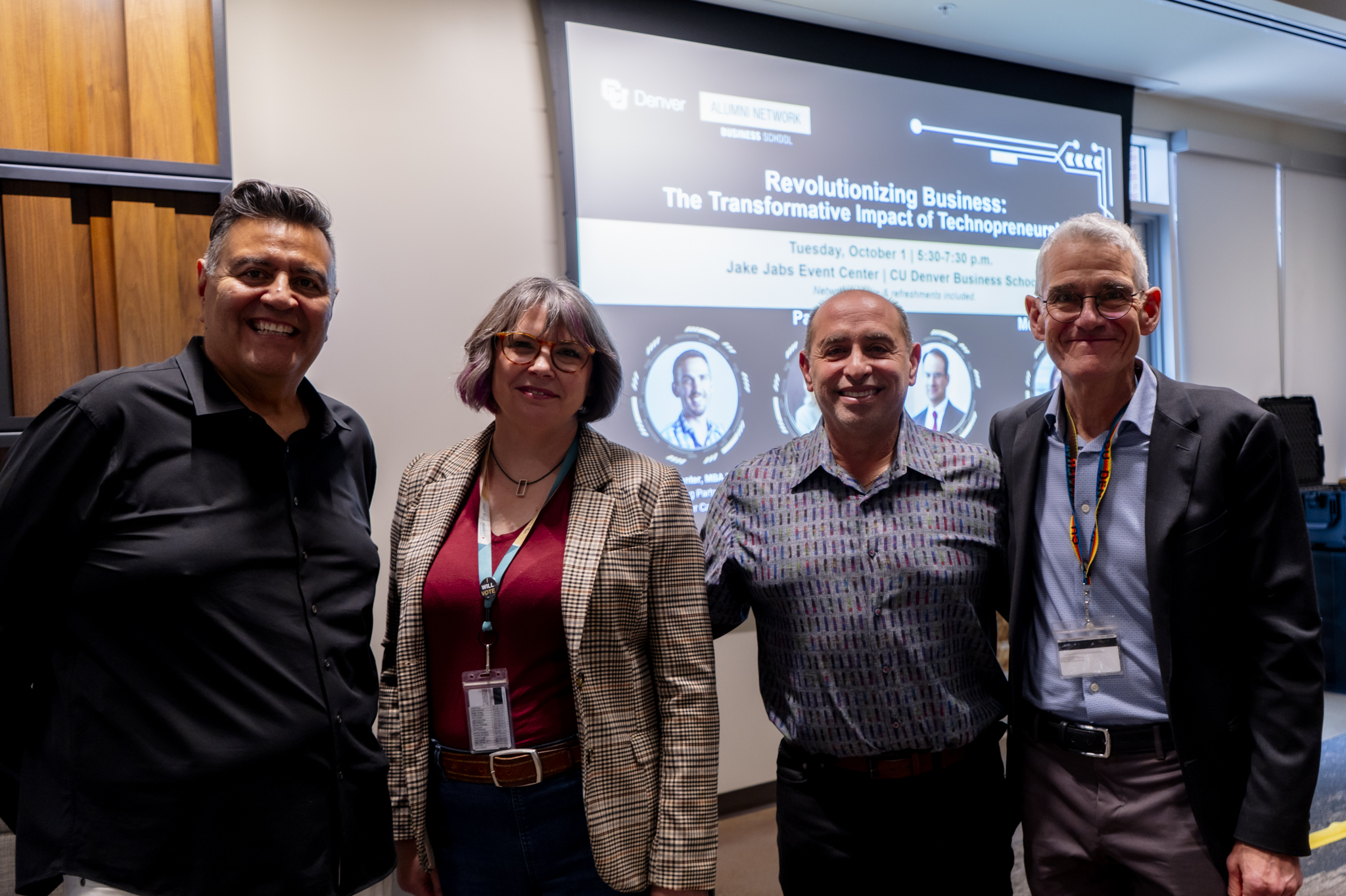The future is multicultural. All but three cities in the top 20 markets are already minority majorities, and the 2020 census predicts that America will be a minority-majority by 2046. The white market is getting older and smaller, and businesses need to adopt diversity, equity, and inclusion (DEI) and multicultural practices to operate in a multicultural world. To gain insight into how cultural authenticity can drive business success, CU Denver Business School and XL Edge hosted its latest Multicultural Business Series event with Angel Colón, Head of DEI at Designer Brands, Inc. (parent company of DSW), and Armando Martín, CEO at XL Edge.
A diverse workforce brings a wealth of perspectives, fostering a culture of innovation. Inclusive workplaces typically enjoy higher employee satisfaction and lower turnover rates. Moreover, companies that embrace diversity are better equipped to understand and cater to a diverse customer base, leading to increased profits and customer loyalty.
Colón laid out three major pillars of DEI. The first is the workplace, which deals with talent development, recruiting, talent planning, inclusive benefits, etc. The second pillar, the Marketplace, is the oft-forgotten step where companies work to align themselves with multicultural consumers. The last is community/society, and Colón recommends companies be philanthropically active in the communities they serve.
It all starts with an understanding of demographics. Knowing shoppers’ intricacies is essential, i.e., consumer insights into and research about how people shop and their behaviors. Businesses can then identify opportunity costs, i.e., how much money is lost without appealing to ethnic minorities. Ethnicity markets can then cluster stores. Identifying ethnicity preferences is a granular and crucial data point to consider. Preferred brands and price preferences can create a tailored customer experience and identify communication preferences. When businesses have gathered these key ingredients, brands can test new ideas and marketing strategies in pilot stores. Colón stressed the importance of listening at this stage, not just to customers but to employees. Establishing a cross-functional committee is also important, where every department is invited to the table.
Colón established the powerful message that multicultural success is business success. CU Denver Business School is proud to host leaders like Colón, who will continue inspiring generations of organic innovation, cultural understanding, and consumer inclusivity.


